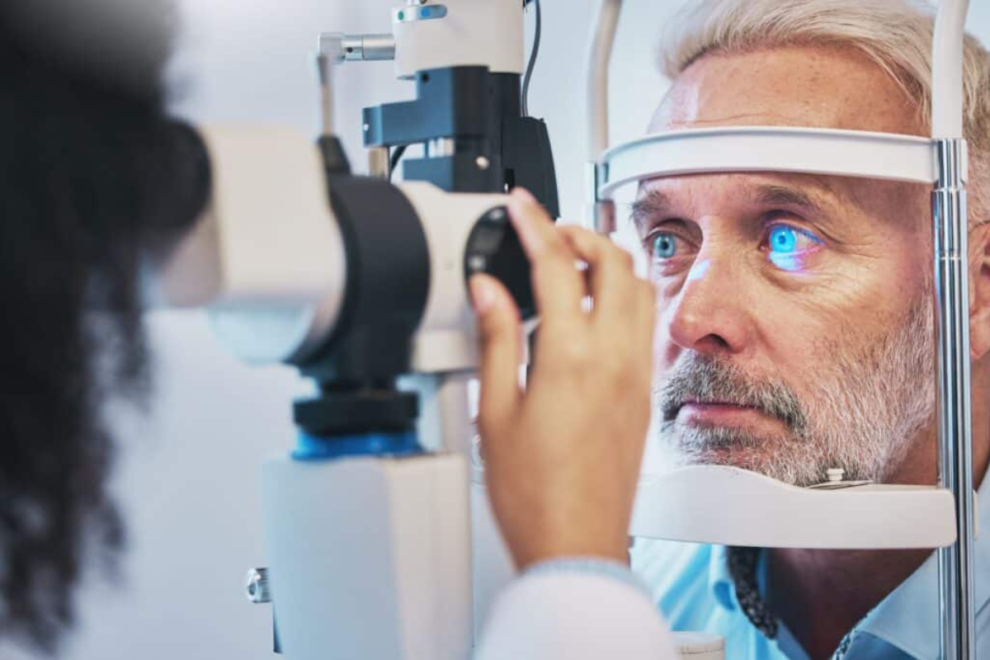Trabeculectomy Surgery: Effective Glaucoma Treatment for Vision Preservation


Free Doctor Opinion
What You Should Know
- A trabeculectomy (truh-bek-u-LEK-tuh-me) is a common surgery done to treat open-angle glaucoma (glaw-KO-muh). This surgery is usually done if medicines and laser surgery are not keeping the pressure in your eyes low enough. Glaucoma is an eye disease that can damage your optic nerve and cause loss of vision (sight). A clear fluid flows through passages inside your eye all the time. With glaucoma, these passages get blocked or clogged. Fluid builds up and increases pressure in your eye. The trabecular (truh-BEK-u-ler) meshwork is the drain system for your eye. People usually develop glaucoma when eye fluid does not drain out properly. The trabecular meshwork is located where your iris (coloured part) and sclera (white part) join together.
- During a trabeculectomy, a tiny hole is made in the sclera. It is usually done in the top part of the eye so that your eyelid can cover it. A piece of the conjunctiva (clear “skin” that covers the eye) is stitched over the hole in the sclera. When eye fluid flows out of the hole, it forms a pocket or “bleb” on the surface of the sclera. The hole should allow enough eye fluid to flow out to keep your eye pressure at a healthy level. This surgery may be done in a clinic or a hospital. One or both eyes may be done. Often, you may go home after the surgery, but sometimes you must stay overnight in the hospital. Your normal vision may take up to 6 or more weeks to come back.
Care Agreement in India
You have the right to help plan your care. To help with this plan, you must learn about your health condition and how it may be treated. You can then discuss treatment options with your caregivers. Work with them to decide what care may be used to treat you. You always have the right to refuse treatment.
Risk It is very important to follow your caregiver’s treatment plan after surgery. If you do not follow the treatment plan, you may not have good results. There are always risks with surgery. You may have a serious infection, swelling, or bleeding. Your eye pressure may not get better or may become worse. Your eye pressure may become too low. This could cause your vision to get worse and cause you to be blind. Your eye may grow a scar that causes the hole to close. This could make your eye pressure increase again. You may get cataracts (cloudy, dark vision). You may need more surgery to treat your glaucoma. You will be watched closely for these problems. Call your doctor if you are worried or have questions about your glaucoma, surgery, or care.
Getting Ready
The Week Before Surgery
- Your doctor may give you eye drops to take 3 or 4 days before surgery. These may help prevent infection.
- Arrange for an adult to drive you to and from your surgery.
- Ask your caregiver if you need to stop taking aspirin or any other blood thinning medicines before your procedure.
- Do not take over-the-counter medicines, vitamins, herbs, or food supplements without first talking to your eye doctor.
- You may need blood tests before your procedure. Talk to your caregiver about these or other tests you may need. Write down the date, time and location for each test.
- Buy sunglasses with UVB protection to wear after surgery.
The Day Before Surgery:
- Ask caregivers about directions for eating and drinking.
- Do not drink alcohol 24 to 48 hours before surgery. Alcohol may dehydrate you, making your eyes and body too dry for surgery and healing.
The Day of Surgery in India
- Ask your caregiver before taking your regularly prescribed medicine on the day of surgery. These medicines include insulin, diabetic pills, high blood pressure pills, or heart pills. Bring a list of your medicines or the pill bottles with you to the clinic or hospital.
- Write down the correct date, time, and location of your surgery.
- Do not wear contact lenses the day of surgery. You may wear your glasses.
- Do not wear eye makeup, perfume, or lotion on your face.
- If you are staying in the hospital after surgery, bring your personal belongings with you. These include your bathrobe, toothbrush, denture cup (if needed), hairbrush, and slippers. Do not wear jewelry or bring money to the hospital.
- An anesthesiologist (an-iss-thee-z-ALL-o-jist) may talk to you before your surgery. This is the caregiver who gives you medicine to make you sleepy during surgery.
- You or a close family member may be asked to sign a legal piece of paper (consent form). It gives your doctor permission to do a trabeculectomy. Be sure all your questions have been answered before you sign the form.
Treatment in India
What Will Happen?
- You will change into a hospital gown. Caregivers will start an IV, usually in your arm or hand. You may receive medicine in your IV to help you relax or make you drowsy. You will be taken on a cart to the operating room. Caregivers will clean the area around your eye with soap and cover it with a clean drape (sheet). They may put in several types of eye drops before your surgery. You may get a shot around your eye to numb it before surgery. You may get general anesthesia (an-iss-THEE-zuh) to keep you completely asleep. You and your doctor will decide which type of anesthesia is best for you.
- Your doctor will use an eye holder to keep your eye wide open during surgery. A microscope will be put over your eye. Tiny incisions (cuts) are made, and a very small piece of the sclera (white part of the eye) is removed. Stitches (thread) will be used to close the incisions and make a covering over the hole. The stitches in your eye will dissolve (melt) in time so your doctor will not need to remove them.
- Eye drops or ointment may be put in your eye after surgery. An eye patch (bandage) is taped over your eye. This bandage keeps the area clean and dry to prevent infection, and it helps to keep your eye closed. A metal or plastic shield may be put on top of the patch to keep you from accidentally bumping your eye.
After Surgery
Wish to speak to us now? Send us a message and we will call you back –click here
Or email at [email protected] / Call +91 9029304141
Read Also :-
Committed To Build Positive, Safe, Patient Focused Care.
High Quality
Care
Home Review
Medicine
All Advanced
Equipment
Book An Appointment

At We Care India, we offer complete medical services for your entire family, from routine check-ups to injury care, ensuring personalized attention and expert assistance for all your health needs.


